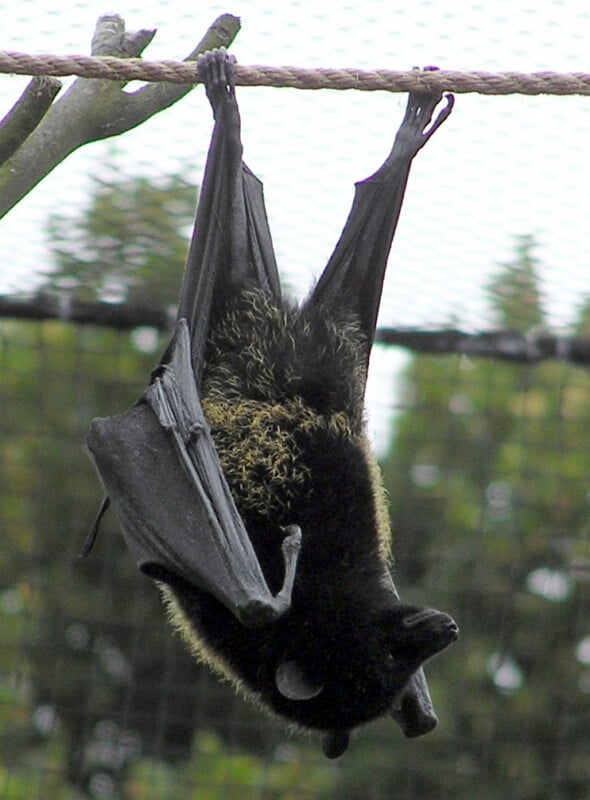Birth of World’s Rarest Fruit Bat Captured on Camera for the First Time
Livingstone’s Flying Foxes are the world’s rarest species of fruit bat and are categorized as critically endangered as there is only an estimated 1,000 living in the wild. For the first time, one of these rare animals was recently captured giving birth.
The rare fruit bat is only found on the islands of Anjouan and Moheli, part of the Comoros islands off the coast of Madagascar. The species, pteropus livingstonii, is mainly threatened by habitat loss due to agriculture and timber production. Described as an “old world bat,” it is one of the largest in its region. They are mostly black with a scattering of gold hairs and have large black, hairless wings that can extend up to five feet from tip to tip.
Conservation efforts have led to some Livingstone’s Flying Foxes to be protected in zoos. One such the Jersey Zoo in the United Kingdom which last year saw a “record breaking” number of 16 healthy bat pups born last year in captivity. While a large number, especially for an endangered species, none of these births were captured on camera, until now.
The Durrell Wildlife Conservation Trust announced this week that the Jersey Zoo has successfully captured footage of a birth in late April.

The Durrell Wildlife Conservation Trust describes itself as an international charity that is headquartered at Jersey Zoo and specifically works to save species from extinction.
“Established by author and conservationist Gerald Durrell in 1959, Durrell’s aim is for more diverse, beautiful and resilient natural landscapes in which species can thrive and people can enjoy a deeper connection with nature,” the organization says.
Born to an eight-year-old Livingstone’s Flying Fox named Nymeria, the footage was recorded by Curator of Mammals, Dominic Wormell, and student Ksenia Potapova. According to CBS News, the newborn will spend the next two and a half months clinging to its mother, at which point it will start to fly and feed itself.
According to its website, the Jersey Zoo now makes up 90% of the global captive population of these rare animals.
“There is only one wild population of this critically endangered bat that isn’t affected by human behaviour. The other colonies all face deforestation of their forest homes due to human populations spreading across their islands. Such an uncertain future makes captive populations vital to saving the world’s most threatened fruit bat from extinction,” the Jersey Zoo says.
“Captive colonies, like the one at Jersey Zoo, provide a safety net population for their wild counterparts – and our bats successfully breed every year, meaning we continue to secure a future for this unique and irreplaceable bat.”
With so few of these bats left in the wild, births in captivity helps to keep the species alive even if the ideal situation would see their wild numbers increasing.